
In this week’s Travel Tuesday Interview, I chat with travel writer Rolf Potts, a legend in the travel world. His book Vagabonding: An Uncommon Guide to the Art of Long-Term World Travel is a travel classic and has inspired many people like Tim Ferriss (and myself) to shun the conventional to travel for long periods of time. In between driving a Land Rover across South America and biking across Burma, he still finds time to write for National Geographic Traveler, The New Yorker, Slate.com and the New York Times Magazine. He discusses traveling with no luggage, advice for aspiring travel writers and why travel is cheaper than you think.
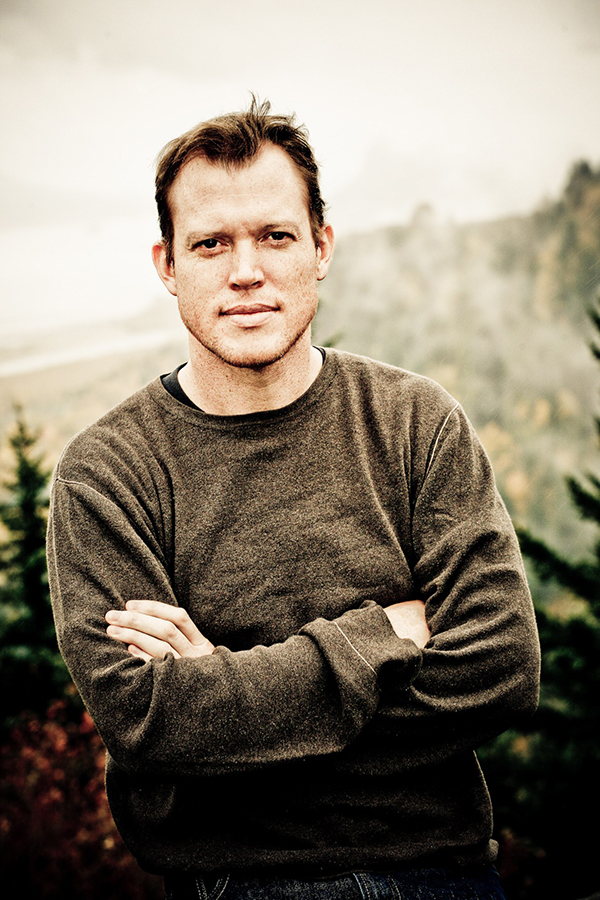
Travel writer Rolf Potts (Photo courtesy of Rolf Potts)
Name: Rolf Potts
Age: 47
Hometown: Wichita, Kansas
Country Count: I don’t count countries—though I’d reckon I’m up to 80-90 by now.
Website: RolfPotts.com
1) How did you start traveling?
Growing up in Kansas, summer vacation trips were the highlight of my year. I pretty much thought that’s what everyone in the world lived for: Annual summer vacations. When I was young I went to places like Kansas City and Chicago and Colorado; I didn’t see the ocean until I was 15. Later, when I was in college and working blue-collar summer jobs in Kansas I began to worry that life wasn’t going to provide me with the multi-month travel adventures I dreamed out. After college I got a job as a landscaper, saved my money, and spent eight months traveling across North America in a Volkswagen Vanagon. At the time I hoped that trip would scratch my travel itch, but in the end it just taught me how easy and accessible and delightful travel could be if you allowed yourself to go slowly and inexpensively. A couple years later I got my first-ever passport, moved to Korea to teach English for a couple of years, and used that money to transition into full-time travel and travel writing. I haven’t looked back since.
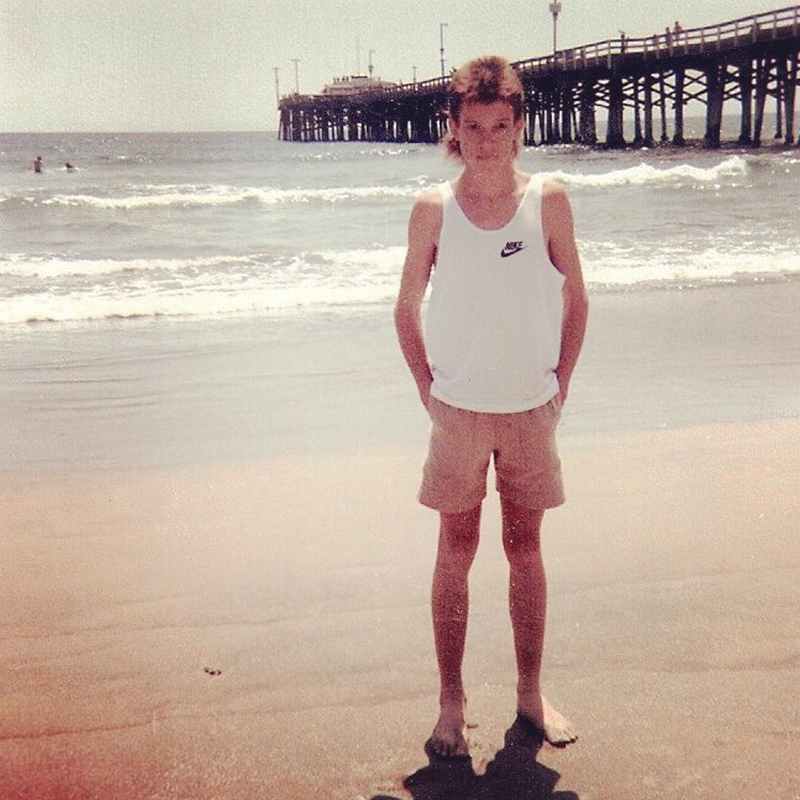
Potts grew up in Kanas and didn’t see the ocean until he was 15. (Photo courtesy of Rolf Potts)
2) What does the average work day look like for you?
I don’t know that I have an average work day. I like the idea of schedules and routines, but I’ve never been good at implementing them long-term. I guess I’m a project-oriented person, in that I can work in a focused way from early in the morning to late in the day if I have a specific, deadline-driven book or longform essay to complete. Whereas my focus is more fragmented when I have a grab-bag of smaller tasks to knock out. I’m not always the most efficient person in the world. Writing-wise I tend to work best in the morning, once I’ve caffeinated and locked in on the task at hand.
3) What are three of your favorite travel books and/or travel writers?
I think I was a more impressionable reader when I was younger, so my favorite travel books tend to stay the same over the years. I mean there’s been some terrific travel books in recent years—I’m thinking Robert Moor’s On Trails or Kate Harris’s Lands of Lost Borders—but newer books don’t affect me the way that, say, Pico Iyer’s Video Night in Kathmandu or Annie Dillard’s Pilgrim at Tinker Creek affected me when I was younger. Tim Cahill, Paul Theroux, Eddy Harris, Jan Morris—there’s a whole generation of late-twentieth-century travel writers who were important to me at a certain time in my career. And Walt Whitman, of course. He isn’t really seen as a travel writer, but his “Song of the Open Road” is essential reading.
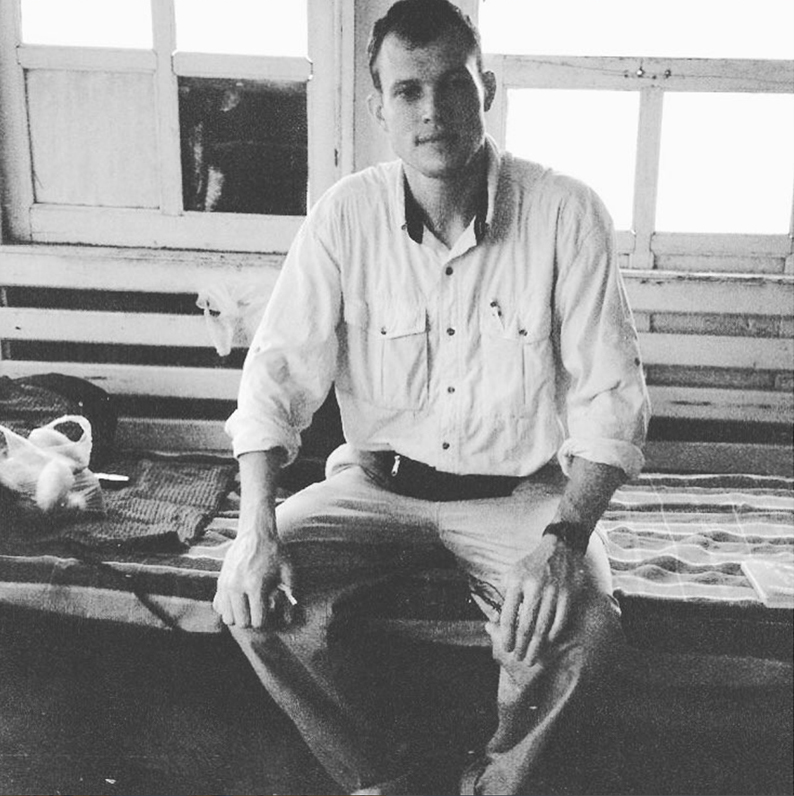
In May 2001, Potts took a “slow, decrepit old mail steamer” down the Irrawaddy River in Burma. This adventure later became the opening line of his book, Vagabonding. (Photo courtesy of Rolf Potts)
4) Share one of your travel highlights.
I’ve been traveling for so long now that I don’t think I could narrow my highlights down to a 100-point list, let alone a single representative experience. Taking a wooden Laotian fishing boat 800 miles down the Mekong River in 1999 was an unforgettable adventure for me. But then so was laying out in a meadow at Yellowstone’s Wolf Lake at the end of my very first vagabonding trip, just soaking in the sun and feeling so grateful at having made the decision to travel long-term. There have been countless moments in my travel career since then that have reminded me of how grateful I am to have experienced so many parts of the world.
5) What is the biggest myth about travel?
I think the biggest myth about travel—or at least the most damaging myth—is that it’s too expensive for most people to do over the long term. There’s is idea that travel is something you buy like a commodity, when in fact it works better if you simply give it to yourself—if you slow down and use what money you have to travel in tandem with local economies. The travel industry is designed to make vacations comfortable and efficient for vacationers, and that’s fine. But if you sidestep those expenses and take your life on the road, intermingling with the lives of your host cultures, you can actually travel for the same amount of money (or less) than what you spend from month to month at home.
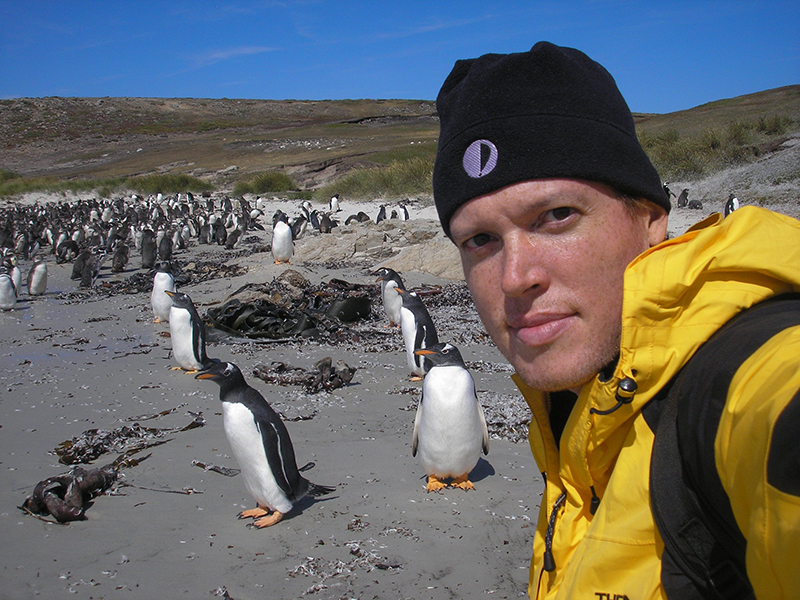
Potts takes a selfie with penguins in the Malvinas (Falkland Islands). He doesn’t count countries but estimates he’s probably been to 80-90. (Photo courtesy of Rolf Potts)
6) How do you balance work and travel?
At best I blend the two in such a way that they feed into each other. This doesn’t always work, of course. Back in my earliest days of international travel writing, when I was writing a biweekly column for Salon Travel, I was traveling and writing full-time, often reporting my adventures a few days after they happened. These days I have a stronger travel/work separation, and I do most of my writing back home in the United States. Sometimes, while on the road, I’ll rent a flat in, say, Cape Town or Buenos Aires with the specific intention of being still and writing—but for the most part the bulk of my writing now gets done when I’m stateside.
7) You often ask writers you interveiw for their advice or warnings for someone interested in going into travel writing. What is your advice and/or warnings?
Do it because you love to write. Seriously: There are better ways to fund long-term travel, and the perceived “romance” of travel writing is going to lose its romance pretty quickly if you resent sitting indoors writing articles and books and blog posts when you’d rather be outside exploring. A corollary of this advice is that you have to seek to write well—be that on the sentence-level of prose, or at the content-level of information. This of course means that you have to read well, and hone your craft over the course of many years. You are always honing your craft as a writer, and the quality of your writing always counts for more than the content of your travels. I know that might sound strange—and I think it’s important to travel mindfully and well—but in the end it’s the writing that counts. Pico Iyer could write about a trip to the corner 7-11 and make it compelling in a way that some people who have summited Everest cannot.
8) Since your 2010 trip around the world with no luggage, how has your packing changed? How do you currently pack?
I was always a light packer, but my six-week no-luggage circumnavigation of the globe taught me that what you bring with you rarely has much bearing on the quality of your travels. I wrote and co-produced a real time video series of that experience, and one of the narrative challenges early in the trip was the fact that traveling with no luggage wasn’t as hard as I thought it might be. After a week or so I simply got used to using the handful of items and extra clothes I kept in my vest pockets, and short of veering into fiction I couldn’t really dramatize the “challenge” of no-luggage travel because it had ceased being a challenge early on. As it happened this was great; it meant that I could focus all of my energies into the places and adventures I was experiencing. I haven’t done a ton of no-baggage travel since—in part because a small carryon bag isn’t that much of a hassle—but my packing list has gotten lighter. Beyond simple toiletries and a small rotation of clothes I don’t really need anything.
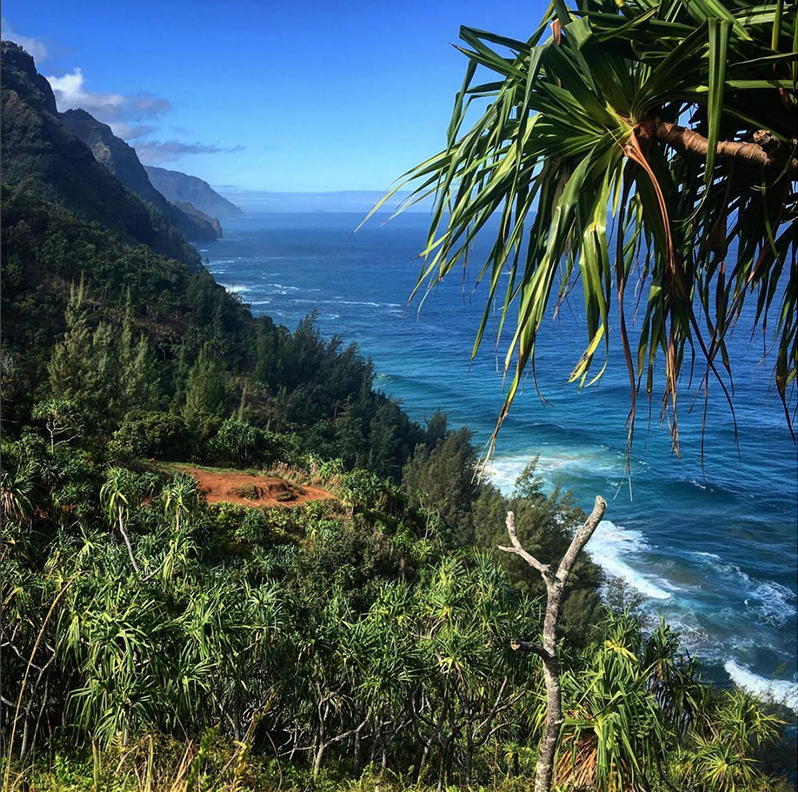
Potts unplugged and spent last winter hiking in Hawaii. He shot this image on Kalalau Trail Vista on the island of Kauai in February 2018. (Photo courtesy of Rolf Potts)
9) Travel is often the greatest teacher. What’s the most recent lesson you’ve learned through travel?
I think the lessons get subtler and more nuanced the longer you travel. I spent much of the last winter in Hawaii—a place I’d never visited before, despite having been to far more exotic parts of the world—and I ended up doing a ton of hiking. Not for an article, but just for the joy of walking alone on a trail all day. It took me back to the person I was a long time ago, at around age 19, before I was so obsessed with writing about my adventures. There is a certain freedom in going into a jungle or a forest or a mountain range and walking all day for no reason beyond the fact that it brings you pleasure and allows you to commune with a more solitary, unplugged version of yourself. No story notes, no article ambitions, no goals—just a day on foot. Man, I really loved that. It took me back to the wisdom of my 19-year-old self, and reminded me that sometimes you can just enjoy a day in the wilderness to enjoy a day in the wilderness.
10) What is your next adventure?
I cut my teeth as an international traveler in Asia, and—after wintering in recent years in South America, southern Africa, and Hawaii —I’m feeling the urge to go back to Asia. I’ll probably start the journey in Thailand—a country I know well: I wrote Vagabonding there —then go to farther-flung places. I’ve never been to Sri Lanka or Nepal, and I’ve barely scratched the surface of Indonesia, so those are all possibilities. I don’t even know yet which places I’ll choose—I just look forward to the joy of making those decisions once the journey is underway.
To learn more about Rolf Potts, visit his website, subscribe to his podcast or follow him on Instagram and Twitter. Be sure to check out his classic book, Vagabonding: An Uncommon Guide to the Art of Long-Term World Travel and his most recent book, Souvenir, which as released earlier this year.
____________________________________________________
COMING UP NEXT
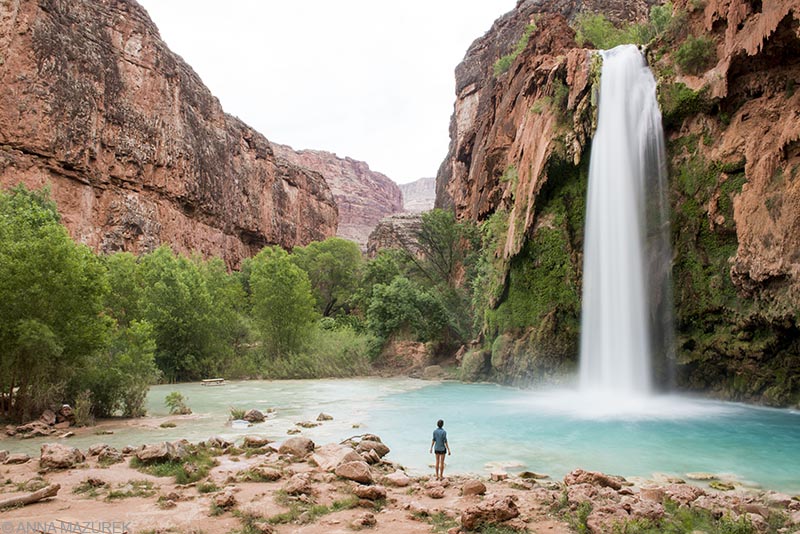
A long exposure at sunrise at Havasu Falls, Arizona
Photo Guide to the Havasu Falls
In my next post, I recap my Havasu Falls hike in Arizona this summer. I cover details about all three waterfalls, packing lists, and most importantly—how to get one of the elusive permits!

